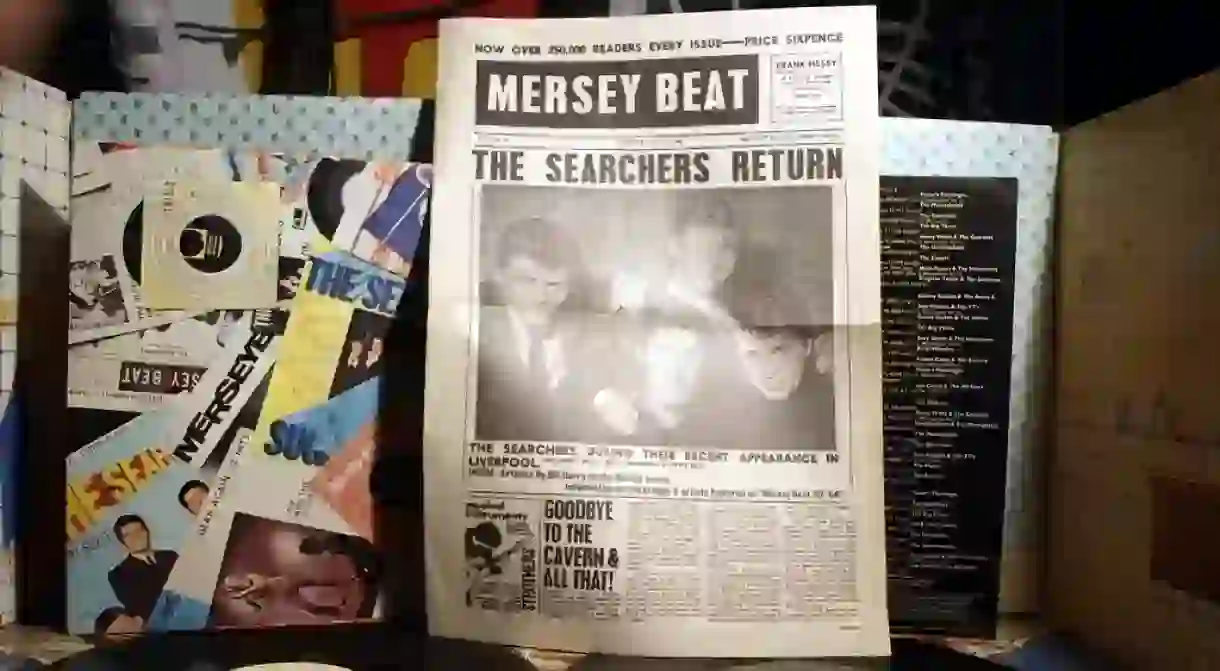The Story of How Merseybeat Took Over the World

Merseybeat, also known as beat music or British beat, took over the world in the early ’60s thanks to the rise of a little band from Liverpool called The Beatles. Read on as we delve into the story of how Merseybeat took hold of the world of music.
Early history
Merseybeat was said to be a natural progression from the deteriorating skiffle scene. Skiffle was a music genre which blended folk, blues and jazz in the 1950s. The Quarrymen, a prominent skiffle group in the mid-1950s were formed by John Lennon in 1956, and would later go on to progress into The Beatles.
The sound was similar to that of rock and roll tracks, and accentuated the beats of a 4/4 bar. Large urban English cities like Liverpool, London, Birmingham and Manchester were at the fore of the Merseybeat scene, with a number of influential bands emanating from each city.

Progression
Following the resurgence of talent scouts visiting Liverpool, Merseyside’s music scene was booming. Allan Williams – the owner of local music venue The Jacaranda – had developed a working relationship with German venue manager Bruno Koschmider and had sent The Beatles over to Hamburg for a series of gigs. In August 1960, The Beatles began the first of 48 successive nights at Hamburg’s Indra Club, sparking the early worldwide development of the Merseybeat scene. Furthermore, a number of Liverpudlian bands like The Searchers and Gerry & The Pacemakers would also go on to perform across the Liverpool/Hamburg circuit, pushing the beat sound to the masses.
During the peak of Merseybeat, there was reportedly up to 350 active groups performing in Liverpool, at venues like The Cavern Club.
The British Invasion
For the first time, Merseybeat was picking up pace outside of Europe. In 1964, The Beatles were invited to perform on the Ed Sullivan Show in America, with the phenomenon ‘Beatlemania’ breaking out, and chart success following shortly afterwards. In the same year, The Beatles’ saw success with ‘I Want to Hold Your Hand’ – their first USA number one hit.
The popularity of The Beatles would see an explosion of British talent across the US airwaves. The Rolling Stones, The Troggs, the Animals and Donovan would go on to have one or more number one singles in America as a result of The Beatles – and Merseybeat’s – success.

Decline
By 1967, Merseybeat started to hit a rough patch. With the ever-growing popularity of the blues-rock sound that was emerging, beat music began to sound out of date. Coupled with this, the majority of groups involved with the Merseybeat scene had shifted their sound towards areas of psychedelic and progressive rock. This was around the time that The Beatles’ sound began to evolve, with albums like Sgt Pepper’s Lonely Hearts Club Band and Magical Mystery Tour marking a significant shift in sound for the scene – and the quartet.
Though the Merseybeat scene was relatively short-lived, its influence still lives on today. Liverpool is still seen as one of the most thriving musical cities in the world and The Beatles are still one of the most loved bands of all time.














